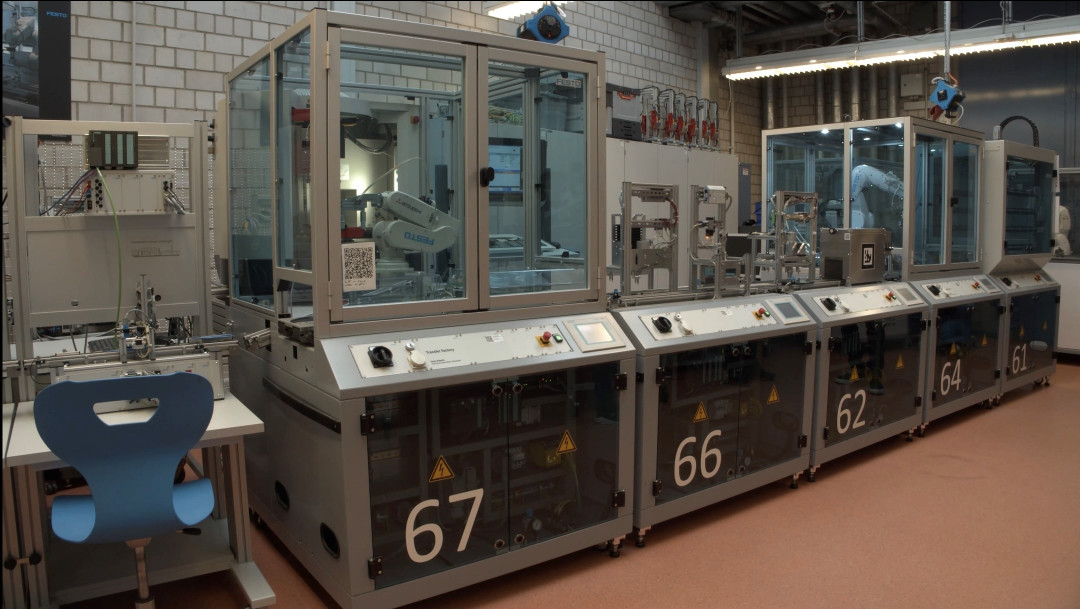
What can so-called Learning Factories 4.0 do for the further training of skilled workers? A great deal - if the teaching concepts and framework conditions are right. This is the conclusion of a study by the Karlsruhe Institute of Technology (KIT). According to the authors, vocational schools and companies should work together much more closely than they have in the past, for example when it comes to customising the courses on offer and advertising them. At the same time, they call for improved integration of continuing education programmes into the operations of vocational schools and for courses to be opened up to company trainers.
Learning Factories 4.0 are regarded as the classroom of choice for the digitalised production of the near future, which is permeated by artificial intelligence (AI). Located in companies or vocational schools, learning factories recreate the new production environments in an application-oriented way - similar to a flight simulator in pilot training. There are currently 43 learning factories at vocational schools in Baden-Württemberg alone. The learning factory, which was developed at the Institute for Vocational Education and General Education (IBAP) at KIT in collaboration with the University of Education Schwäbisch Gmünd and the Industry 4. 0 Baden-Württemberg, sponsored by the Baden-Württemberg Ministry of Economic Affairs, Labour and Tourism, shows that there is a large gap between the aspirations and reality of these facilities: "The potential of vocational learning factories is far from being fully exploited, as the conducive framework conditions at vocational schools are lacking and they have not yet been supported by any institution in the implementation of further training courses," says Professor Lars Windelband, head of the study and holder of the professorship for vocational education at IBAP.
Using case studies as well as discussions and workshops with experts, the Karlsruhe researchers have recorded the current status of the use of vocational learning factories, identified obstacles and challenges, but also analysed examples of successful implementations. Based on the findings that, on the one hand, the framework conditions at vocational schools and, on the other, the cooperation between vocational schools and companies are inadequate, they make five specific recommendations for action:
- Changing the framework conditions at vocational schools in order to relieve the burden on teachers and make teaching assignments creditable for further training courses
- Opening up further training courses for company trainers in order to dovetail teaching content
- More networking between vocational schools and companies in order to map the needs of companies in target group-orientated offers
- Use centralised or decentralised platforms for the dissemination of further education offers
- Testing alternative operator models for the long-term support of vocational learning factories
The conditions for the success of in-company continuing education in learning factories also include convincing teaching approaches. In the WB@Lernfabriken project on which the study is based, the researchers developed a three-stage didactic framework concept. The aim of the first stage is to provide an overview of initial knowledge and skills relating to Industry 4.0 through to AI and thus create an awareness of digitalisation, Industry 4.0 and a networked production world among the workforce. The aim of the second stage is to train technical specialists who already have basic digital skills, while the third stage provides expertise on specific operational problems - such as the optimisation and maintenance of systems.
"The vocational learning factories," summarises study director Windelband, "face considerable structural challenges. However, if they manage to capitalise on their added value compared to other training providers, they can be the 'beacons of continuing education' that they were once designed to be - especially in the context of the ongoing technological upheaval in industrial production."

